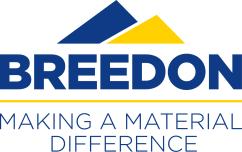Workplace transport warning after forklift fatality
THE Health and Safety Executive (HSE) has once again warned companies about the importance of managing transport in the workplace after a man was killed when the forklift truck he was operating toppled over and crushed him.
Northampton-based Trackline (International) Ltd, manufacturers of crawler undercarriage systems for quarrying and earthmoving equipment, were this week fined £7,500 and ordered to pay £6,690 costs at Lincoln Crown Court.
The company pleaded guilty to failing to comply with Section 2 (1) of the Health and Safety at Work Act 1974 in failing to provide a safe system of work, including factory organization and load-handling arrangements for the operation of forklift trucks.
The prosecution follows an incident at the company’s site in Bourne, Lincolnshire, on 1 August 2007, when employee Shaun Porter was moving a large steel assembly from one end of the factory to the other.
A large vehicle frame was protruding into the unmarked gangway and Mr Porter decided to raise the forks over the obstruction to make room for his vehicle to proceed. On realizing that he was still about to hit the frame, colleagues shouted for him to stop. Mr Porter braked but his load struck the frame causing the forklift truck to overturn.
Mr Porter attempted to jump clear of the truck as it toppled over but it caught him as he fell and landed on top of him, killing him instantly.
During their investigations, the HSE found a lack of marked-out access ways and gangways and no way of assessing the size or weight of loads. In addition, employees were found to be moving around in unofficial routes with no official gangway.
HSE Inspector Jo Anderson said: ‘If vehicles, including forklift trucks, are to move around in the workplace, it is vital that clearly marked gangways are in place and that the risks arising from the loads being carried are controlled. Companies must understand the importance of managing transport in the workplace in order to prevent a tragedy like this happening again in the future.’



